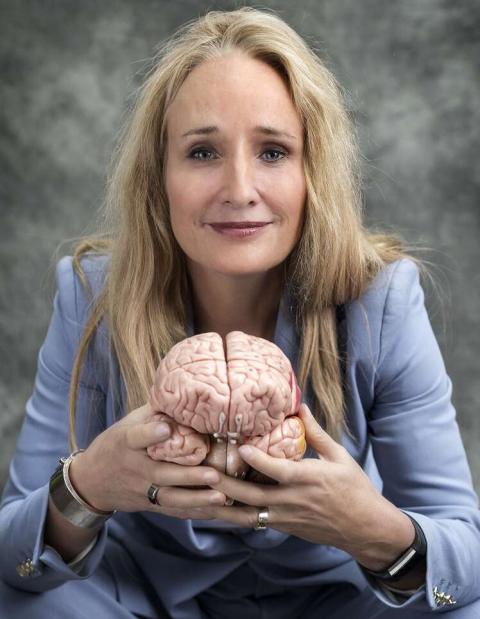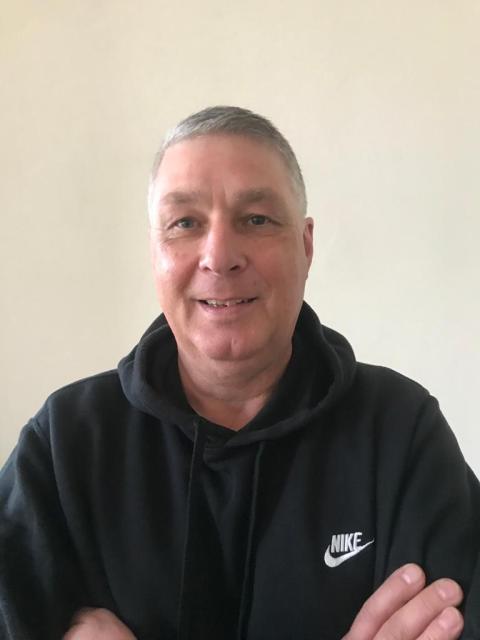Science and practice to jointly combat poverty in Waalwijk
Poverty is more than not getting presents or not being able to afford going to the Efteling theme park. Missing out on opportunities to have new experiences and suffering from constant financial stress and shame greatly impact the development of the brain, especially in childhood. Fortunately, something can be done about it. Neuropsychologist Margriet Sitskoorn (Tilburg School of Social and Behavioral Sciences) applies scientific insights to the fight against poverty: “Interventions that stimulate the right areas in the brain have a positive impact on the development of important skills.” This is the approach used in a project called ‘De Sterkste Schakel’ (‘The Strongest Link’) in Waalwijk. The City, researchers, coaches, and families work together to bid farewell to chronic penury and get a grip on the future again.
“Poverty is a generational problem and there are no quick fixes. Long-term support is needed to end generational poverty,” Margriet Sitskoorn explains. “Worldwide research has shown that the constant financial stress to which parents and children are exposed impacts their brains to such an extent that it often denies them the opportunity to make thoughtful decisions and plan ahead. These are essential skills to successfully participate in society. Interventions are necessary to reactivate the relevant regions of the brain.”

We do not fully appreciate how far-reaching the effects of poverty are on society as a whole
Margriet Sitskoorn - Neuropsychologist Tilburg School of Social and Behavioral Sciences
Chaos rules
Family coach Dick van Engelen recognizes this pattern in practice: “Imagine you have to choose between running water and internet access – which may involve you not being able to communicate your diabetic daughter’s blood glucose levels to the hospital. So what do you choose? In the families I visit in this context, chaos predominates. Not only financially, but also in the households, with social contacts, with health … Restoring order financially is often the first step. This already requires a tremendous amount of brainpower, because everything is equally important. People get completely stuck over this.”

Bringing order to financial chaos requires a tremendous amount of brainpower: everything is equally important
Dick van Engelen - Family coach
Triggers
Sitskoorn explains: “Stress activates the most primitive areas of our brain, that regulate the fight, flight or freeze response. This triggers short-term decisions. You have to break this cycle to be able to plan again, think ahead and understand future consequences. Much more is involved than money alone: in today’s society, you need to be able to understand really complex information and use it to make the right choices. The skills you need to do so are developed in the relatively new, front part of the brain: the prefrontal cortex. When you are young, these brain areas develop at lightning speed. We now have a reasonably accurate picture of what interventions positively impact this development, for instance, new triggers and experiences, structure and love, a good sleep-wake cycle, and exercise.”
The value of science: Mobility Mentoring® and the EFFECT program
As a program manager of Tilburg University’s Impact Team, Laura Gottmer is also involved in this project: “The City of Waalwijk approached us about an effective way to jointly address generational poverty. It has resulted in true co-creation, whereby the City, researchers, the families involved, and their networks have designed a promising plan of action. We are now recruiting families and are making a modest start, but ultimately we hope to help 60 families. Periodic monitoring is carried out by a researcher, so that we know what the effect is and adjustments can be made if necessary.”

It has resulted in true co-creation, whereby the City, researchers, the families involved, and their networks have designed a promising plan of action.
Laura Gottmer - manager of Tilburg University’s Impact Team
De Sterkste Schakel
In the De Sterkste Schakel (The Strongest Link) project in Waalwijk, ‘Mobility Mentoring®’ is used, based on insights from cognitive neuropsychology, working actively in collaboration with participants to improve their executive skills, e.g., planning, setting targets, and maintaining an overview. It is a three-tiered model, in which the focus is first on stability, then on economic progress, and finally on self-reliance. Progress is regularly monitored by a researcher from Tilburg University.
Dick van Engelen: “Together with a researcher, I conduct intake interviews with participants in which we explain the main lines of the pilot project and what the study is about. We give them time to think it over, but so far the usual response is ‘give me a pen, where do I sign?’ Within three weeks, baseline measurements were conducted and we will be identifying realistic goals together with participants.”
To train specific executive skills, the EFFECT model (Sitskoorn, 2016) is used. This acronym reflects the model’s constituent parts:
- Enriched environment: enriching your environment with new stimuli, for example, helping families to check out municipal initiatives and facilities for sports and cultural activities.
- Flow focus: doing mindfulness exercises to build and maintain focus for the things that are truly important.
- Fixed sleep pattern: discovering the power of sleep and the benefits of sufficient and sound sleep.
- Exercise: shaping and reinforcing your brain by doing sports and exercise in collaboration with Youth Sports Fund Waalwijk, local sports coaches, and projects like ‘Scoring for Health’.
- Connect today and tomorrow: setting goals, making plans, and working towards them. What is truly urgent and what ‘short-term profit’ is best ignored?
- Time: giving yourself time, because achieving a goal always takes time. Focusing on maintaining your motivation for a particular goal, with the help of a professional family coach.
Popping the corn
“The EFFECT training is simply wonderful!”, Dick van Engelen enthuses about applying scientific findings. He has plenty of practical examples to show for it. “So, for example, I once took a stove that was sitting in the middle of the room to the garbage dump. Merely creating one additional square meter of living space enabled the participant to start planning: do I put a new cupboard here or a mirror? Even small steps to enrich the living environment make a difference. Another lady put it beautifully. ‘I can’t think straight anymore,’ she said. ‘My brain feels like it’s the size of a maize kernel.’ To which I replied: if we pop it, it’ll swell to three times its size – and actually look like a real brain, too. And that’s what we’ll be doing. We’re going for popcorn.”
Date of publication: 21 April 2021
